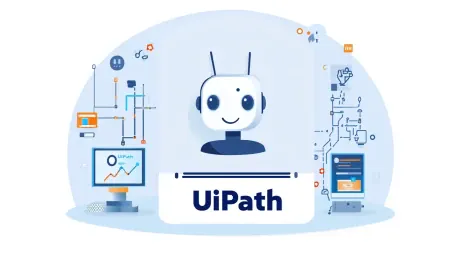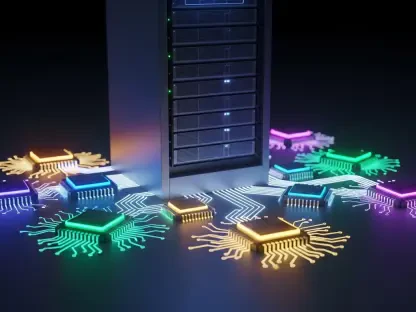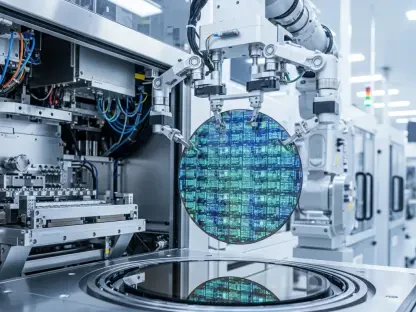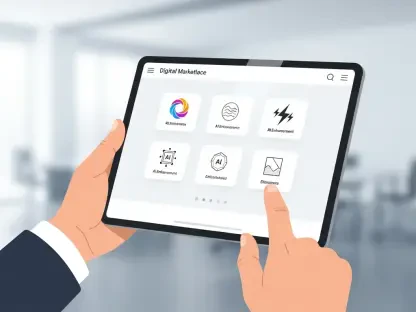The rapid advancements in Robotic Process Automation (RPA) have established a new paradigm in how businesses streamline operations, manage data, and enhance productivity. At the forefront of this transformative movement is UiPath, a leader in the RPA sector, committed to leveraging cutting-edge technologies to propel industries forward. UiPath’s innovative approach combines machine learning (ML), artificial intelligence (AI), and traditional RPA processes, marking a significant shift towards hyperautomation. This multifaceted strategy aims to create end-to-end workflow automation that is intelligent, intuitive, and highly efficient.
UiPath’s Vision for Hyperautomation
Integrating AI and ML into Automation
For UiPath, the incorporation of AI and ML into its automation solutions is not just a unique selling point but a foundational aspect of its future growth. By leveraging large-scale data analytics, UiPath’s AI-driven insights enable enterprises to transition from reactive problem-solving to proactive decision-making. This predictive capability is vital in identifying trends and detecting anomalies, which in turn supports strategic planning and operational excellence. Businesses equipped with these insights can anticipate challenges and implement solutions before issues arise, contributing to more stable and efficient operations.
Moreover, AI and ML integration allows UiPath’s automation tools to continuously learn and adapt. This creates a feedback loop where the automation system becomes increasingly efficient over time, reducing the need for human intervention. The ability to self-improve and refine processes makes UiPath’s offering highly appealing to enterprises looking to optimize their workflows. With advancements in AI, the scope of tasks that can be automated continues to expand, further embedding these technologies into the operational fabric of businesses across various sectors.
Democratizing Automation
Another pivotal goal for UiPath is the democratization of automation, making complex technological tools accessible even to non-technical users. This vision involves the development of user-friendly, AI-assisted interfaces that allow employees at all levels to create and manage automation scripts. By lowering the technological barrier, UiPath enables broader adoption of automation solutions, fostering a culture of innovation and efficiency within organizations. This democratization is particularly impactful in sectors such as healthcare and finance, where automation can significantly enhance service delivery and operational management.
UiPath’s strategy extends beyond merely providing tools; it involves educating and empowering users to maximize the potential of automation. Comprehensive training programs and support resources are part of this initiative, ensuring that users are well-equipped to utilize these technologies effectively. The focus on accessibility and user empowerment aims to create an inclusive environment where everyone can contribute to and benefit from automation. This approach not only broadens the reach of RPA but also ingrains it deeply into the organizational culture, leading to sustained productivity gains and innovation.
Challenges and Ethical Considerations
Addressing Job Displacement Concerns
While the benefits of automation are extensive, concerns about job displacement and ethical implications must be addressed proactively. UiPath is acutely aware of these challenges and advocates for a collaborative approach where human workers and robots work in synergy. The company emphasizes the augmentation of human tasks rather than their replacement, striving for a future where automation enhances rather than diminishes employment opportunities. This perspective is essential in assuaging fears and garnering support for automation initiatives across various industries.
UiPath is committed to transparency and ethical AI use, ensuring that its automation solutions are designed with human-centric principles in mind. This includes continuous dialogue with stakeholders to understand and mitigate the potential negative impacts of automation. By fostering a collaborative environment and promoting the responsible use of AI, UiPath aims to create a harmonious balance between technological advancement and societal well-being. This approach not only addresses ethical concerns but also builds trust among users and clients, reinforcing UiPath’s leadership in the RPA sector.
Ensuring Robust Security Measures
In an increasingly digitized world, the security of automated processes becomes paramount. UiPath prioritizes the robustness and integrity of its automation solutions to safeguard data and protect against potential breaches. Implementing rigorous security protocols and regular audits, the company reassures clients of the safety and reliability of its RPA tools. This commitment to security is crucial in maintaining trust and ensuring that automation solutions are both effective and secure.
UiPath’s proactive stance on security involves continuous improvement and adaptation to emerging threats. By staying ahead of potential vulnerabilities, the company ensures that its clients’ data remains protected. This focus on security helps alleviate concerns about the digitization of sensitive information and supports the broader adoption of automated processes. Through a combination of innovative technology and rigorous security measures, UiPath positions itself as a trustworthy partner in the journey toward intelligent automation.
Future Prospects and Conclusion
Pioneering Sustainable Automation Solutions
UiPath’s vision for the future extends to creating sustainable automation solutions that emphasize efficiency and productivity gains. The company is continually innovating, with a clear roadmap for making automation universally accessible and straightforward. This ambition aligns with a broader industry trend towards developing technology that is not only advanced but also user-friendly and widely applicable. By focusing on sustainability, UiPath aims to ensure that its automation solutions can provide long-term benefits while minimizing potential drawbacks.
This forward-thinking approach involves anticipating future needs and challenges, allowing UiPath to stay ahead of the curve. The company’s dedication to continuous improvement and innovation fosters an environment where automation technology can thrive and evolve. This ensures that UiPath’s solutions remain relevant and effective in meeting the demands of a rapidly changing business landscape.
Reaffirming Leadership in RPA
The rapid advancements in Robotic Process Automation (RPA) have introduced a groundbreaking shift in how businesses optimize operations, handle data, and boost productivity. At the cutting edge of this transformation is UiPath, a leading entity in the RPA realm, dedicated to using advanced technologies to push industries ahead. UiPath’s pioneering strategy integrates machine learning (ML), artificial intelligence (AI), and traditional RPA processes, heralding a significant movement toward hyperautomation. This comprehensive approach aims to create seamless, intelligent, and highly efficient end-to-end workflow automation. By combining these technologies, UiPath not only automates routine tasks but also introduces a level of sophistication that enhances decision-making and operational effectiveness. Their commitment to innovation ensures that businesses across various industries can adapt to rapidly changing market demands, maintain competitiveness, and achieve higher levels of productivity. UiPath’s vision is to harness the full potential of RPA, AI, and ML, enabling organizations to transition into the future with greater agility and foresight.









